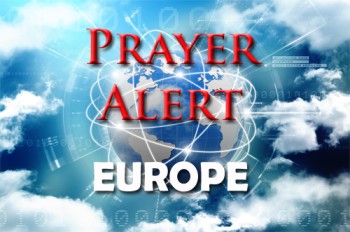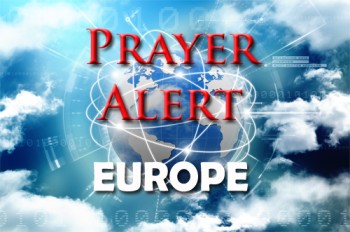Displaying items by tag: Europe
Finland: Christian charity cuts ties with Palestinian NGO
FELM, a Finnish Christian missionary group, has cut ties with Palestinian children's rights NGO Defence for Children International-Palestine. Mr Stefansson, the charity's executive director, said they had concerns about possible banking sanctions of DCIP who are one of six Palestinian groups accused by Israel of channelling donor aid to militants and labelled as a terrorist organisation. The six accused groups have close ties to the Popular Front for the Liberation of Palestine, which carries out deadly attacks on Israelis and is on US and EU terrorism blacklists. DCIP rejects the charge and says it has asked FELM to reconsider cutting funds. Steffansson said it is impossible to maintain ties with the group as, ‘It could have impacted the work we do in 30 countries through banking services.’ DCIP relies on European aid to fund its advocacy and rights monitoring work in the Israeli-occupied West Bank and Gaza.
Germany: Ahr valley region reconstruction
The flood disaster in the Ahr valley was three months ago. Much has been achieved but reconstruction will take a long time. Many houses had to be demolished and over thirty may not be rebuilt. Houses that could remain standing have been completely cleared and left empty to dry out. Large parts of the natural gas network were destroyed, and many oil heating systems in the affected houses no longer work. The government is working flat out to find solutions to the problems and to be prepared for the upcoming winter - including providing mobile gas supply systems and oil tanks, the use of mini-power plants and the purchase of a Tiny House for residents who need accommodation for the winter due to a lack of heating. The electrical power supply has not yet been completely restored and there is a lack of craftsmen and building materials for the renovation and reconstruction work. See
Italy: G20 - climate and Covid
When the G20 leaders met in Rome last weekend, at their first face to face meeting since the pandemic started, climate change and Covid were on the agenda. The talks come amid increasingly dire warnings for the future if urgent action is not taken to cut emissions. The G20 group of countries and the EU account for 80% of the world's carbon dioxide emissions. According to Reuters, a draft communiqué outlined a promise from the G20 to work towards limiting the rise in temperatures to 1.5C, saying it ‘will require meaningful and effective actions by all countries’. Covid vaccine equality is also on many leaders' minds. Italy’s prime minister said that just 3% of the six billion Covid vaccines administered worldwide had gone to the poorest countries, which was ‘morally unacceptable’. He called fellow leaders to do ‘all we can’ to vaccinate 70% of the world's population by the middle of 2022.
Moldova: severe energy crisis
Moldova has made history by buying gas from a source that was not Russia's Gazprom. The one million cubic metres came from Poland's PGNiG. Moldova will need much larger volumes if Russia cuts supplies, as it has threatened to do if they don’t agree to increased costs in a new contract. In the absence of a new deal Russia reduced supplies, prompting Moldova to declare a thirty-day state of emergency. Gazprom accused Moldova of ‘provoking a crisis’ and demanded repayment of a $709m (£514m) debt, which Moldova disputes. Officials say they would like to sign a new contract with Gazprom, but only if the terms are favourable. Negotiations continue. Moldova said PGNiG’s shipment was to test the ability of imported gas from alternative sources, and PGNiG was one of seven offers they had received. Critics accuse the Kremlin of hiking gas prices to punish Moldova for electing a pro-European president, Maia Sandu.
Italy: flash flooding and hurricane
An official In Catania, Sicily, called the situation ‘very critical’. Streets are completely flooded, and a red alert - the highest level warning - has been issued for flooding in northeast Sicily and the southwest region of Calabria. A depression on the Mediterranean is causing disturbed weather conditions in southern Italy. Over two feet of rain fell in half a day - never seen before. While storms continue, a Medicane (rare Mediterranean hurricane producing 5 metre waves) meanders south, with 150mm of rain predicted for Friday with localized areas receiving higher amounts. Schools and businesses are closed, and people are advised to stay indoors and banned from areas prone to landslides. Fire and rescue have had hundreds of callouts in one day. See alsowww.bbc.co.uk/news/world-europe-59048809
EU strategy on combatting anti-Semitism
Last week you prayed for an end to anti-Semitism in European football matches. This week the European Commission has presented its first ever comprehensive strategy on combatting antisemitism and fostering Jewish life. The commission said, ‘This is a strategy document which we as European citizens can take great pride in. Combatting antisemitism in the EU is a shared responsibility requiring joint efforts and action at every level.’ Pray that EU institutions and agencies, member states, international organisations, Jewish organisations, and human rights organisations will play their part in achieving a society free of anti-Semitism.
Channel smugglers are outwitting France and UK
People-smuggling networks in migrant camps are slick and organised. It took little more than a week for Hamid to find a people-smuggler in Calais. Within a couple of days, he was hiding near the beach with 75 others, waiting to cross the Channel in a small inflatable boat. Over 18,000 people so far this year have crossed the twenty miles of sea between Britain and France in small boats. Despite significant investment on both sides of the Channel, that's more than double the number last year. France's northern coastline is covered with dunes, foliage and hundreds of old WW2 bunkers where migrants can hide. High-security fencing and surveillance cameras now successfully protect the ports and Eurotunnel terminal, but surveillance is difficult among forested dunes. Hamid’s crossing cost £2,500, on top of the £7,275 he had paid to leave Afghanistan and cross Europe to France.
Canary Islands: a month of volcanic activity
Unfortunately, there has been no change in activity in the Canary Islands volcano; the eruption continues to feed the growing lava flow field at high effusion rates. Its northern margins continue to be active and advancing south into areas already buried under lava flows. Consequently the government has had to evacuate another adjacent area.
Canary Islands volcano danger growing
Lava from the Cumbre Vieja volcano, which has been erupting for four weeks, has destroyed even more homes and buildings. The two new vents that opened last week have partially collapsed, causing lava to flow in multiple directions. The local airport was closed again for two days and 800 more homes were evacuated as rapid flows of molten lava moved towards them, bursting homes into flames. There were 64 more seismic movements recorded, the strongest measuring 4.1. There are no signs of eruptions and earthquakes stopping soon. Over 1,100 buildings and 600 hectares of land had been destroyed by 13 October, and the next day the lava flows expanded again with even more evacuations ordered in three more areas.
Germany: anti-Semitism at football match
UEFA are investigating Union Berlin after shocking acts of anti-Semitism took place during a match with Israel’s Maccabi Haifa football team in a Nazi-built stadium. Before the game Maccabi players laid a wreath at Berlin’s Holocaust memorial. During the game a Jewish group of fans were subjected to anti-Semitic abuse and assaulted in the mixed area of the stands where fans from both teams sit together. They were threatened, pelted with beer, insulted, and one fan tried to set fire to an Israeli flag. UEFA said that an ‘Ethics and Disciplinary Inspector’ has been appointed to conduct a disciplinary investigation regarding discriminatory incidents. Police are also investigating the antisemitic abuse, which included other incidents around the stadium. Club president Dirk Zingler said, ‘This latest display of anti-Semitism, in a place so iconic for the Nazis, shows there is still work to be done to stamp it out in German society.’









